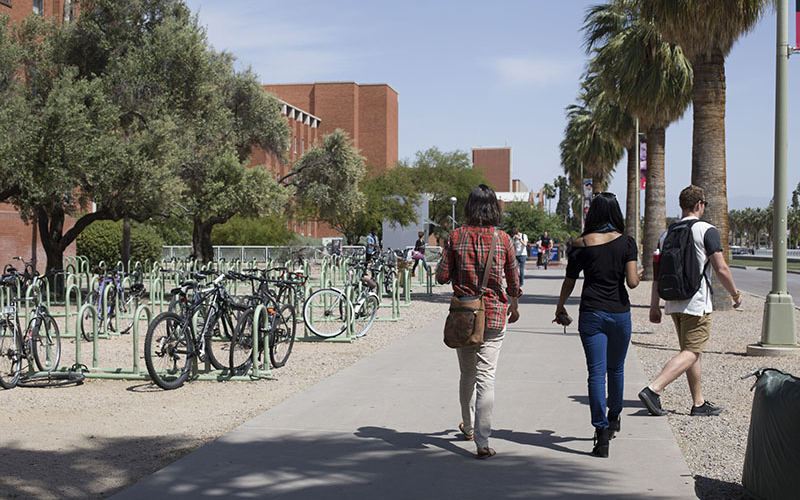PHOENIX – The 9th U.S. Circuit Court of Appeals ruled Monday that a Title IX lawsuit against the University of Arizona filed by a former student can move forward, reversing a previous ruling by its own three-judge panel that held the school was not liable.
Mackenzie Brown filed a lawsuit against the university in 2017 after she had been assaulted in 2016 by Wildcats football player Orlando Bradford, who later pleaded guilty to aggravated assault and domestic violence and was expelled. She alleged the university knew about two prior assaults committed by Bradford but did not take action to stop him from assaulting other students.
In January 2022, a three-judge panel of the circuit court ruled against Brown, saying that the school did not control the context in which the assault occurred because it occurred off-campus and therefore could not be held liable. Brown petitioned for a rehearing before the entire court, which was granted at the end of 2022, and the case was heard on March 21.
Writing for the majority, Judge William Fletcher argued that the university did have control over the context in which the assault occurred because of its prior knowledge of two other assaults committed by Bradford.
“It is undisputed that if university officials had told Bradford’s coaches of his violent assaults on (two other students), Bradford would have lost his football scholarship, been kicked off the football team, and likely been expelled from the University by the end of his freshman year,” Fletcher wrote in the opinion.
Fletcher also argued that because Bradford had been given permission by coaches to live off-campus during his sophomore year, the university was in control of the context in which the assault occurred, despite not being in control of the physical location.
However, three judges dissented in the case, arguing that the university only had control over the abuser, not the context in which the abuse occurred. The dissenting judges also said the case explored issues out of the written scope of Title IX – which prohibits discrimination on the basis of sex in federally funded schools and universities.
In a statement, Alexandra Brodsky, Brown’s attorney who argued the case before the court, said that this decision is not only a win for Brown, but for other students affected by gender violence.
“Today’s opinion is a victory for Mackenzie and for student survivors across the country,” Brodsky’s statement read. “Gender violence has grave effects on students’ access to education. For that reason, the civil rights law Title IX requires schools to address known abuse. And as the Ninth Circuit explained today, a school’s power to stop violence—and its responsibility to do so—doesn’t stop at the campus boundary.”
Shiwali Patel, director of justice for student survivors, and senior counsel at the National Women’s Law Center, which filed a brief supporting Brown, said this case is significant for the impact it will have on other cases of off-campus sexual assault.
“There are students, a lot of students, living off campus and a lot of sexual assault occurs off campus, and yet the impact of it on the student and their ability to feel safe and welcomed on campus and to learn is still there,” Patel said. “So it’s so important that courts make clear, as they do in this case, that Title IX requires a response from the school and holds them accountable, even though the assault occurred at an off campus location.”
The University of Arizona declined to comment.
The lawsuit will now return to U.S. District Court, and Brown’s Phoenix-based attorney, Isabel Humphrey, said in a statement she is looking forward to presenting the case.
“I am very pleased that we will, at long last, have the opportunity to present Mackenzie’s case to a jury,” Humphrey’s statement said.


